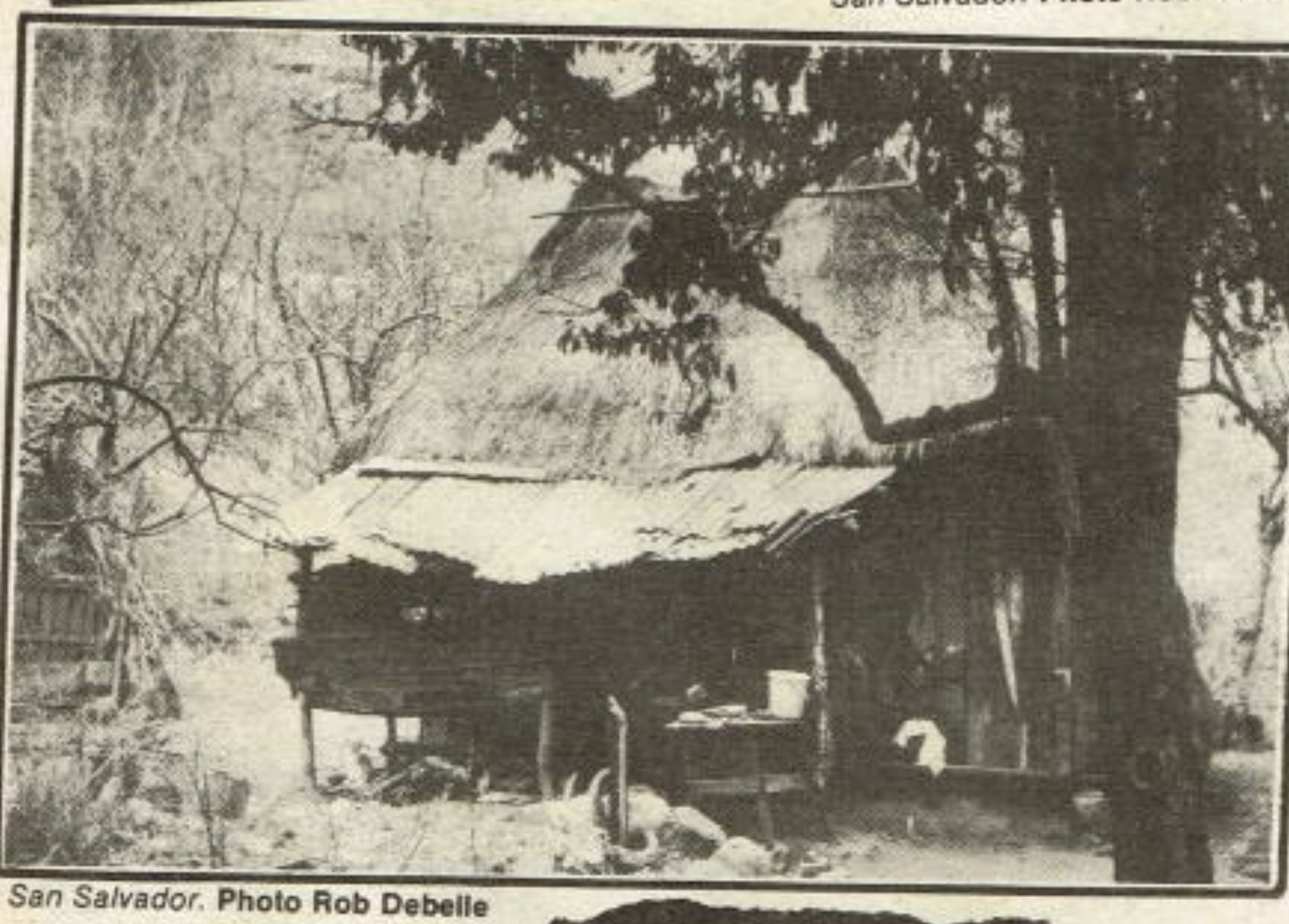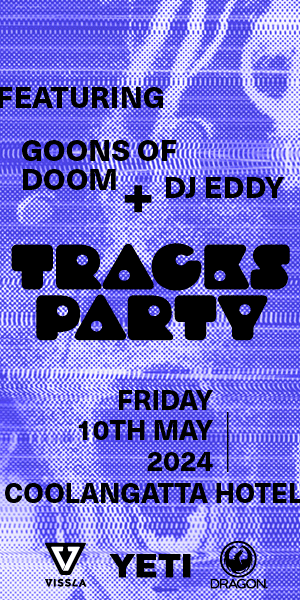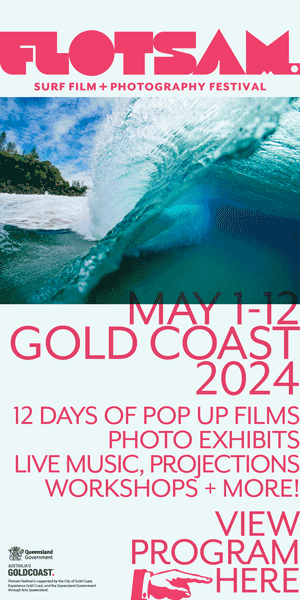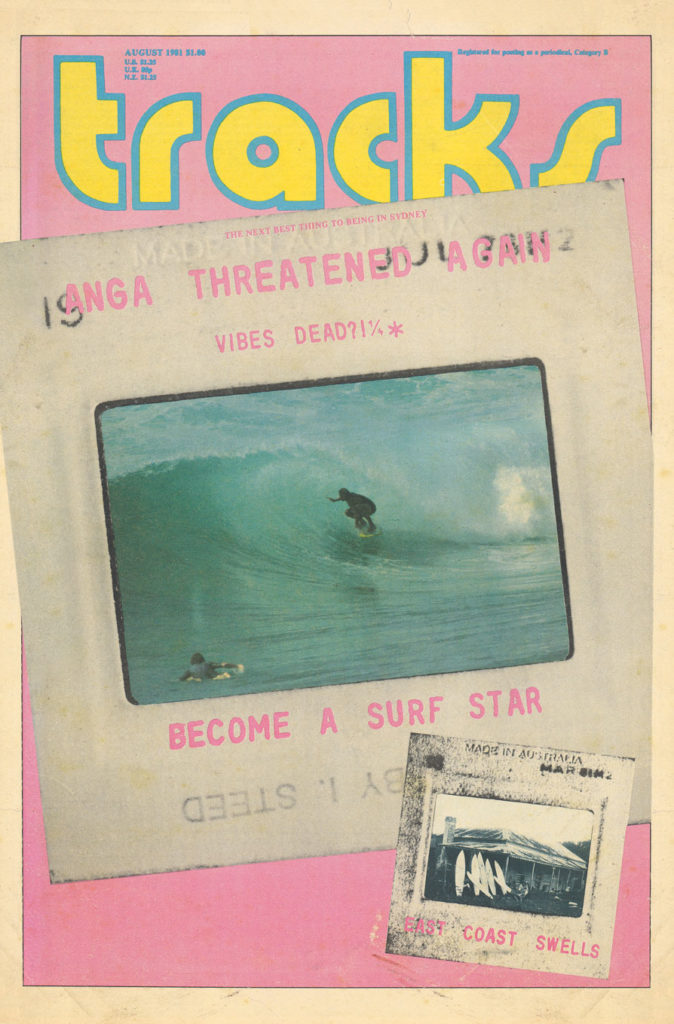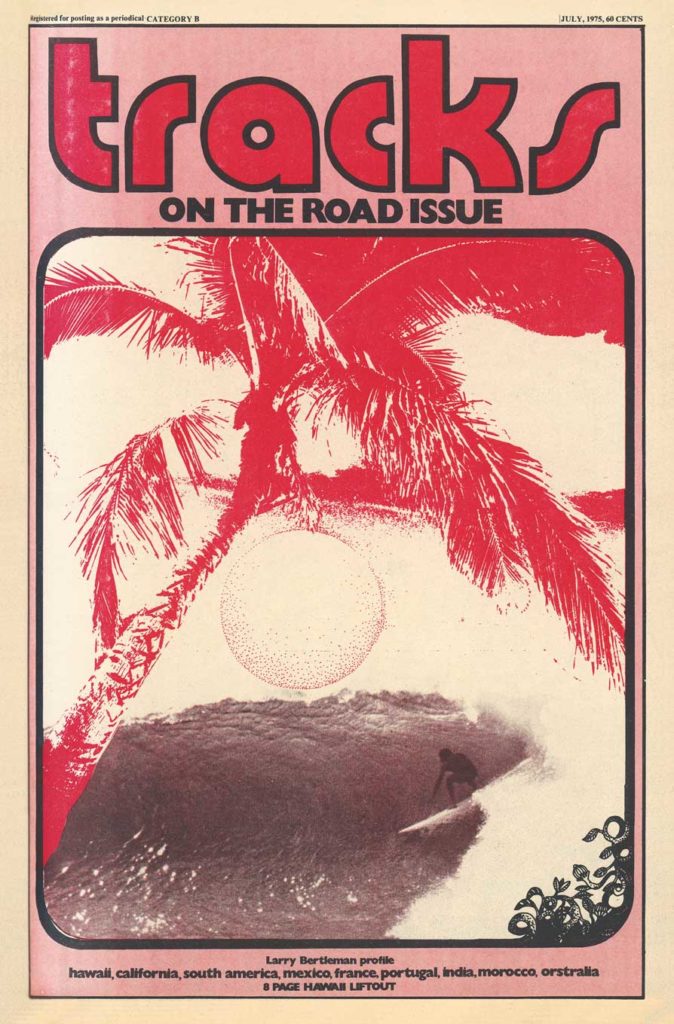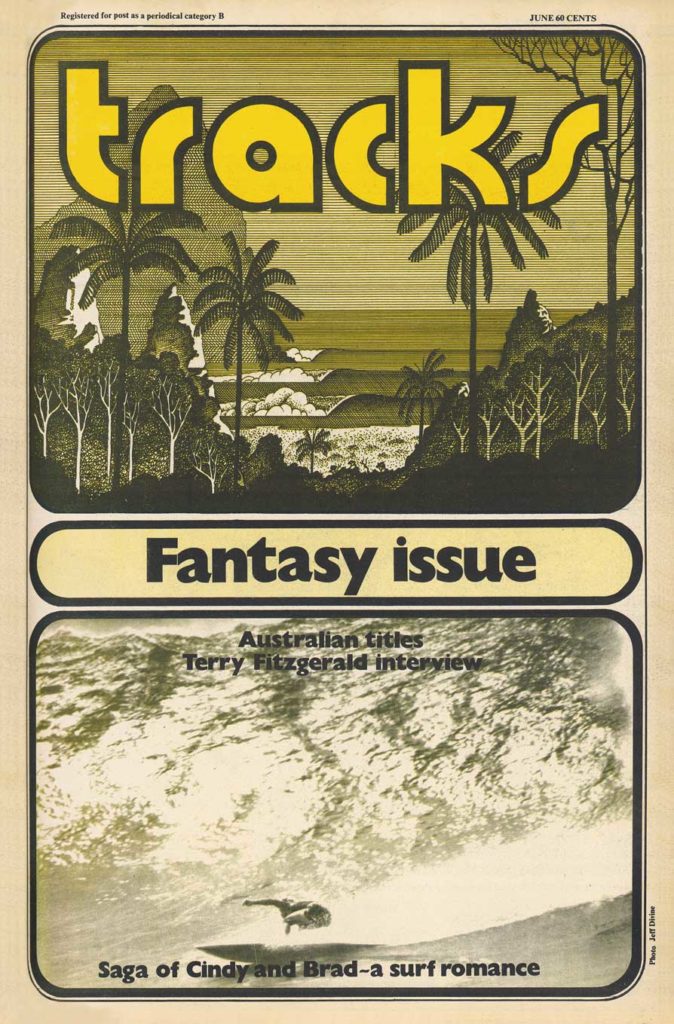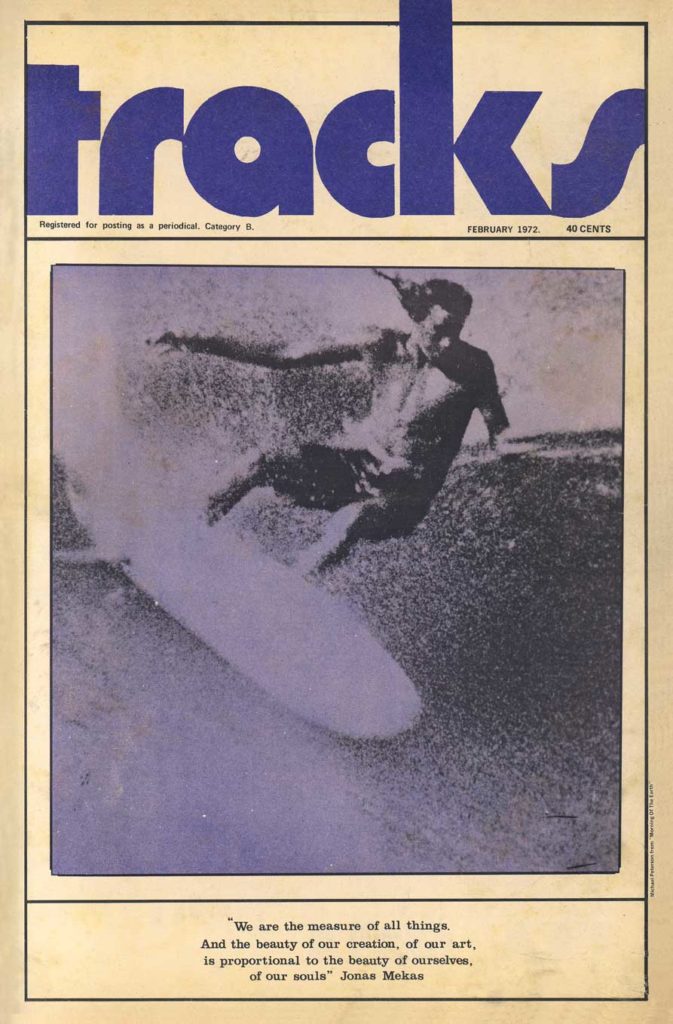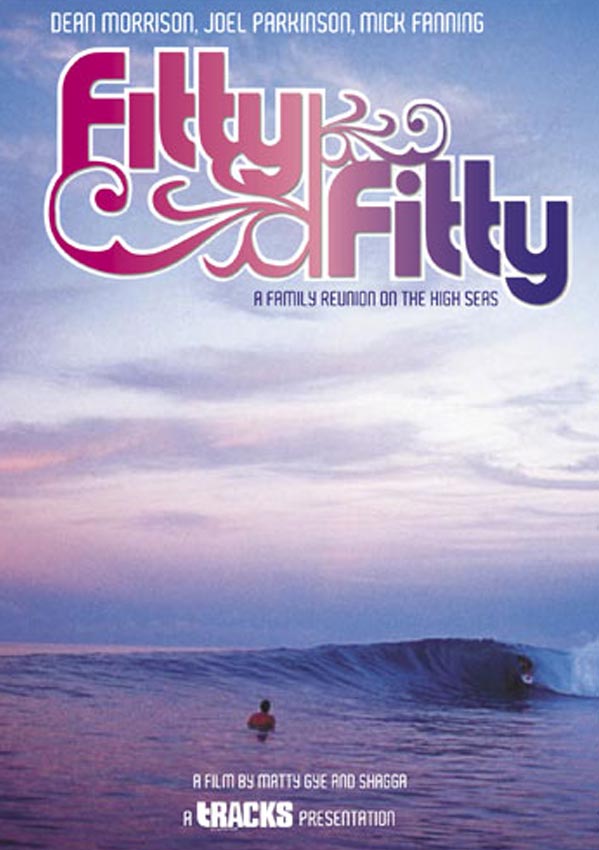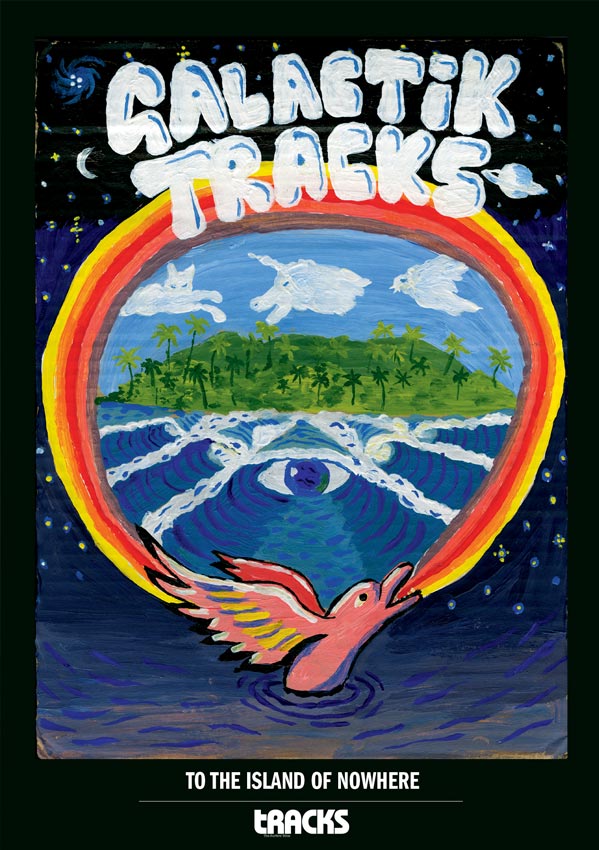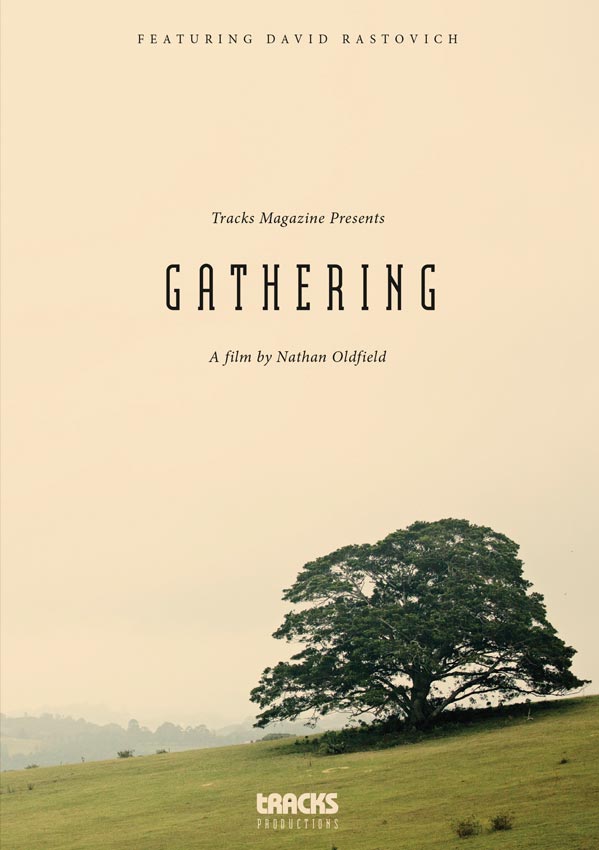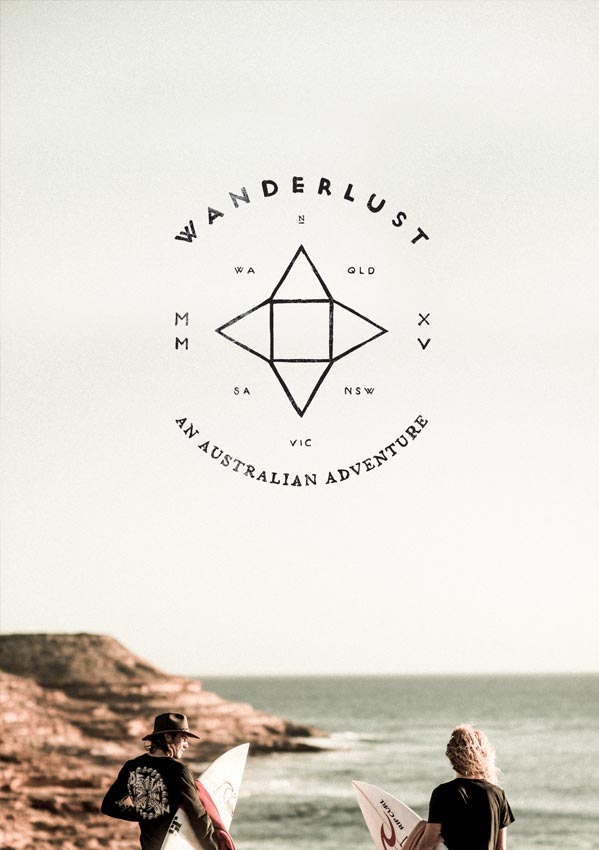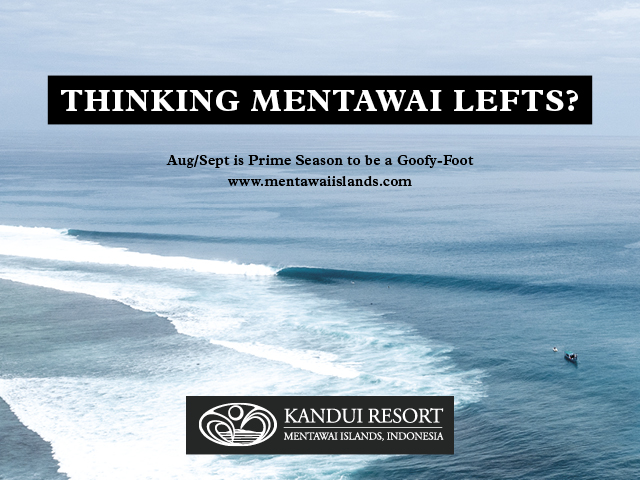The World Surf League posse has landed in El Salvador for the seventh event of the Championship Tour (CT). In its second edition, the Surf City El Salvador Pro is the newest event on the CT schedule. The event’s sponsored-name “Surf City” is a tourist project created by Salvadoran President Nayib Bukele to develop the coastal area and attract tourists to the Central American country.
Over the years, El Salvador has had long-standing safety concerns with the repercussions of a devastating civil war and constant gang violence. The country has been experimenting with new ways to attract people to El Salvador, such as having Bitcoin as their legal tender and creating initiatives such as the “Surf City”.
Some daring surfers from the past didn’t need to be drawn in by a tourist campaign. Tracks Correspondent Rob Debelle travelled to the country in the early 80’s, when it was in the throes of a civil war. The archive below featured in Tracks Magazine Issue no. 128 (May, 1981).
***
EL SALVADOR- IS PARADISE LOST?
The Central American country of El Salvador is currently in the throes of war. Australians have sampled her waves, Big Wednesday was filmed there and, till the recent warfare, Brazilians and Americans have flocked there. El Salvador is a poor country where it is estimated two percent of the population owns 60% of the wealth. After Ronald Reagan won last year’s U.S. presidential election, El Salvador guerillas, inspired by a guerilla victory in neighbouring Nicaragua, launched a major campaign to oust the government before Reagan took office. They began an all-out assault on the handful of wealthy people, the ruling oligarchy, who had installed their family and friends in high-ranking positions in the army. South Australian surfer, Rob Debelle, has travelled the world extensively and he spent two months in El Salvador in 1977. He says there has not been a proper election in the country since 1932. When he arrived there they had just had an election – a popular figure won but the decision was reversed by the military and General Romero became el presidente. Romero got the flick in a 1979 military coup and a stooge was put in his place, Signor Duarte. At the time of writing he was still president. Tourism has stopped and the Australian Department of Foreign Affairs had warned Australians not to go to El Salvador or Guatemala. If they do they have to report to the Australian Embassy in Mexico, advising of their travel plans. From a surfer’s point of view, perfect waves are peeling off the numerous points unridden. Rob Debelle said he originally went there for the surf – “but you just can’t help getting involved”. Debelle reports:
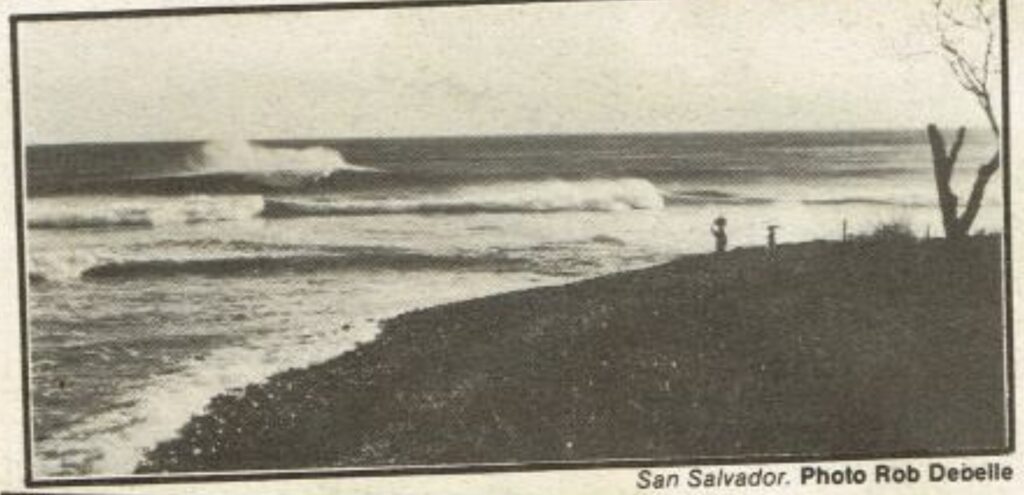
After many months on the road, you kinda forget about punctuality and fear and anxiety, things that you associate with urban living. So I was pretty laid. back at Guatemala airport, drinking a dark coffee at a free coffee booth placed at the airport to promote Guatemalan coffee. The senorita serving the coffee was pretty laid back too so we didn’t, notice that the jets were taking off one after another climbing over the Sierra Madre that runs like a spine right through Central America into Panama. The Pan Am clerk saw me and began mumbling to me in Spanish and I knew enough Spanish to realise I missed my connection to Salvador. El Salvador, the last surfing frontier of the Americas. I had been separated from my Californian mates who were bringing the Land Rover down through Guate- mala and Honduras and we were to rendezvous at La Libertad, on the coast of El Salvador. I had left Mexico City. tired and strung out for a surf after spending a month there working for an ungrateful Australian businessman. La Libertad. It means “freedom”, and we had been told about the perfect right- handers that monotonously roll into the Punta Roca (Rocky Point) and Playa de Zun Zal. The light off-shore breezes and uncrowded conditions were to bring John Milius and his Hollywood set to El Salvador to film Big Wednesday.
The Pan Am clerk explained a pro- cedure that saw me on an empty TECA DC-3 for the two hour flight from Guatemala City to San Salvador, the capital of El Salvador. It was now nightfall and I stepped off the plane into the semi-darkness of the airport terminal. My boards were already there, having come down on the flight I missed, and two customs officials were sitting on the “tables de surf”. The relief of having made it safely with my baggage soon left me when I tried to hire a taxi to take me straight down to La Libertad. At first I thought the driver was holding out for more “dolares”. But then it all began to register, the semi-darkness of the airport, few taxi-drivers and almost no officials to be found. Customs didn’t even want to check my bag. Curfew. A new word for the Salvadoreans but the background was all too familiar to them. In response to yet another election fraud, the popular organisations of El Salvador had launched a widescale protest in which the “Zocalo”, the central square in San Salvador, was occupied by about 10,000 people. The security forces of the wealthy “coffee families” and government troops had savagely attack- ed the demonstrators in the square and by nightfall, the square was cleared and a curfew imposed on the city. Hundreds were killed, but I found that out much later. The morning papers said 13 had been killed.
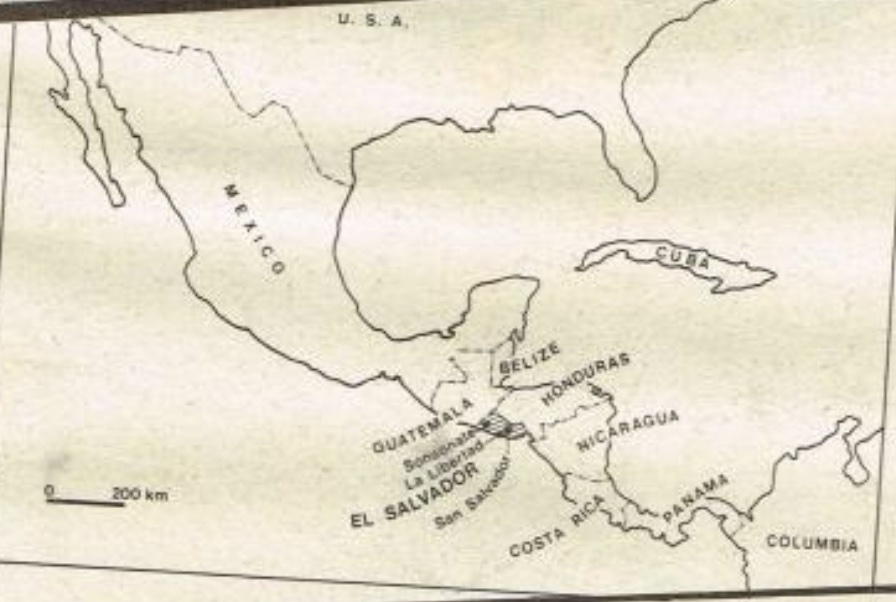
I sheltered that night in a rundown hotel with the pretentious name of “The Inter- American”. I could see the guards patrolling the square in jeeps with machine-guns mounted on the back, and track-vehicles which appeared to be old tanks. I could hear fighting during the night, but by morning the troops had gone and the hustle and bustle of San Salvador suddenly emerged for what would appear to be just another day. I walked down to the bus station to make a cheap journey down to the coast. The new MacDonalds, San Salvador’s pride and joy, was closed, with bullet holes in the glass and tiled wall. Seven Flavours was also closed, but re- opened in days, indicating that anti- American feeling can be stopped by force. Re-united with my friends, I dis- covered that the whole countryside was about to boil over. The lovely tropical beach which was to become our home for two months seemed so removed from war, and the people were extremely warm and generous, despite their poverty. We were very confused, and did not know who was fighting who. It seemed that private armies could strike at any time, and some surfers said they had seen bodies dumped from a helicopter about 2 miles off-shore. The gruesome discovery of a boy’s body on the beach at Zun Zal sort of confirmed our worst apprehensions. The peasants were armed with machetes and little else. It did not seem real that these people were seriously hopeful of over-throwing the military government. All government buildings, banks, newspaper offices and commercial properties were heavily guarded with armed soldiers in U.S.-style fatigues.
The reason for the peasants revolt was obvious. Even the church was regularly condemning the inequalities and government atrocities. The development of this beautiful tropical paradise had meant the channelling of vast resources into the hands of a small number of wealthy families of Spanish descent. “the coffee families”. These families and the children’s families and their children’s children’s families had surrounded them- selves with Mercedes Benz and BMWs in huge Spanish villas in San Salvador. They protected their land and wealth by the use of their private armies and the government militia. These families have been the government, since the 1930s when free elections were dispensed with. La Libertad is the Hawaii for many Brazilian and Floridian surfers, and the surf over the next two months didn’t let us down. Big Wednesday was shot, although I don’t know how they disguised the black sandy beaches so as to look like Malibu in that Gidget re-make. P.T. and lan Cairns surfed a lot, and exercised their bowels a lot. No matter how careful you are, the bug gets into your intestine.
We drove out via the Pam American highway, sad to leave the quality surf and pleasant surroundings. After two months you forgot about the people’s struggle or you just didn’t believe there really was a guerilla war going on. You surfed all day. American surfers sold T shirts and old Dewey Webers to the rich kids who would come down to Zun Zal on weekends. Beer was cheap, mangoes and avocados practically free. That was in 1977. Now El Salvador is a bloody battle ground with already a small force of U.S. Marines down there propping up the corrupt government. The families have tried to make the government look legitimate by placing a civilian stooge as President instead of a General. History has shown the peasants that they have to die fighting rather than take any more oppression. Machete fights were always common place, and the most petty argument would sometimes mean death rather than loss of face. This extreme machoism of the El Salvadorean peasant and his fanatical pride is now generating the revolutionary zeal of the guerillas. There are no Cubans or Russians down there. just bitter people fighting for social reforms that have been denied them for centuries. I know a number of American and Australian surfers will genuinely feel sorrow for the peasants of this country that many surfers have come to love and dream of between holidays. It is tragic irony that El Salvador, the set for John Milius’ Big Wednesday has become the real life Vietnam of Milius’ and Coppolla’s Apocalypse Now.
